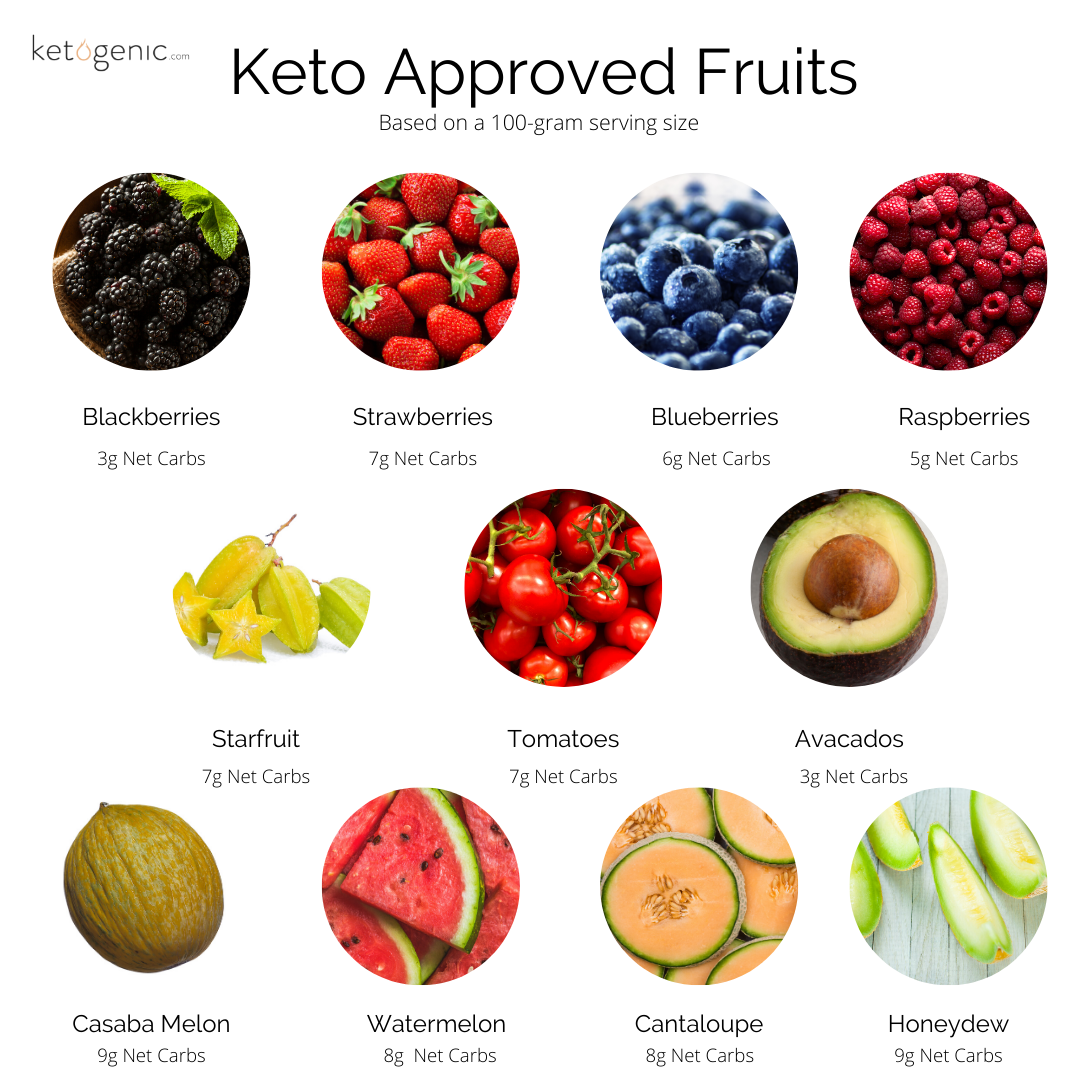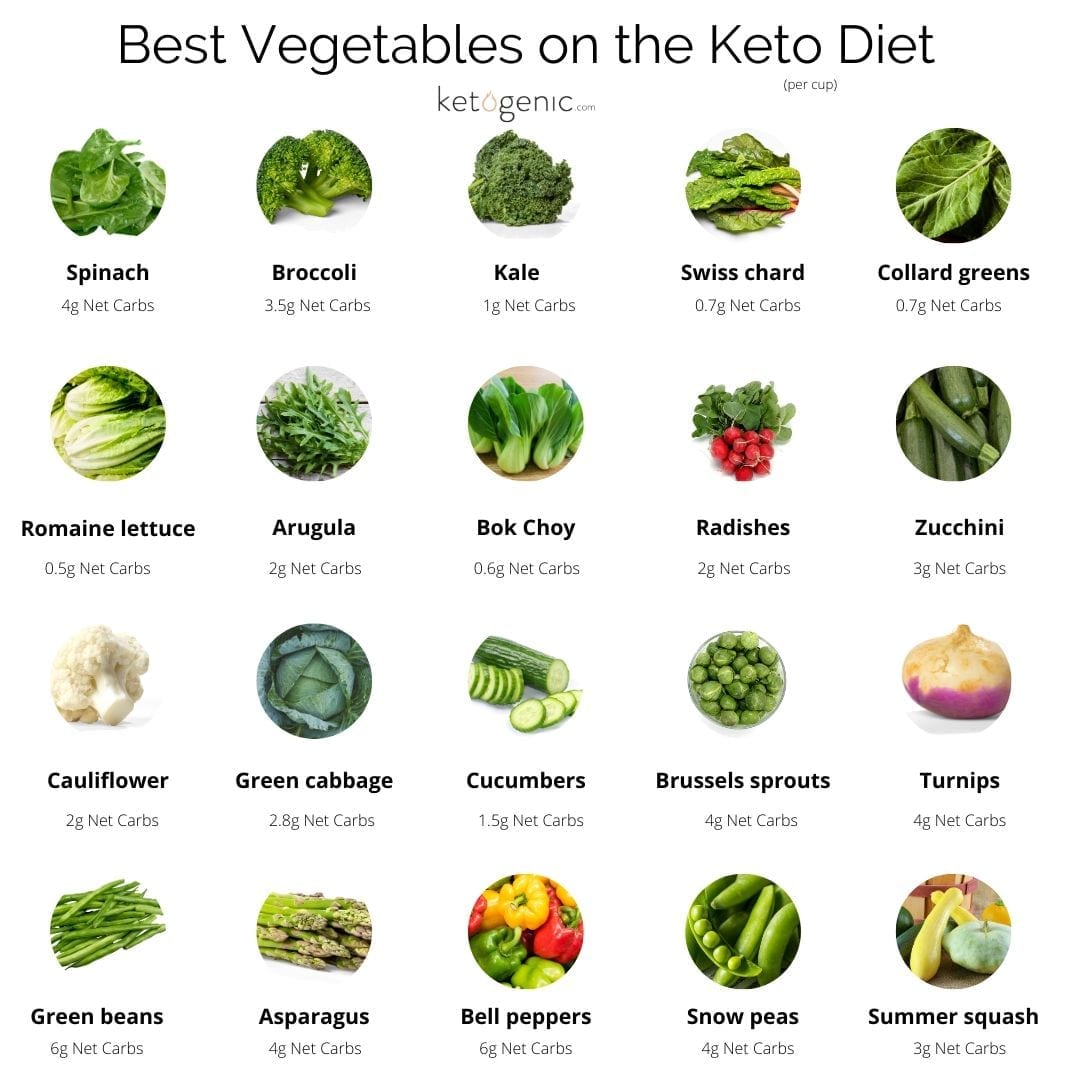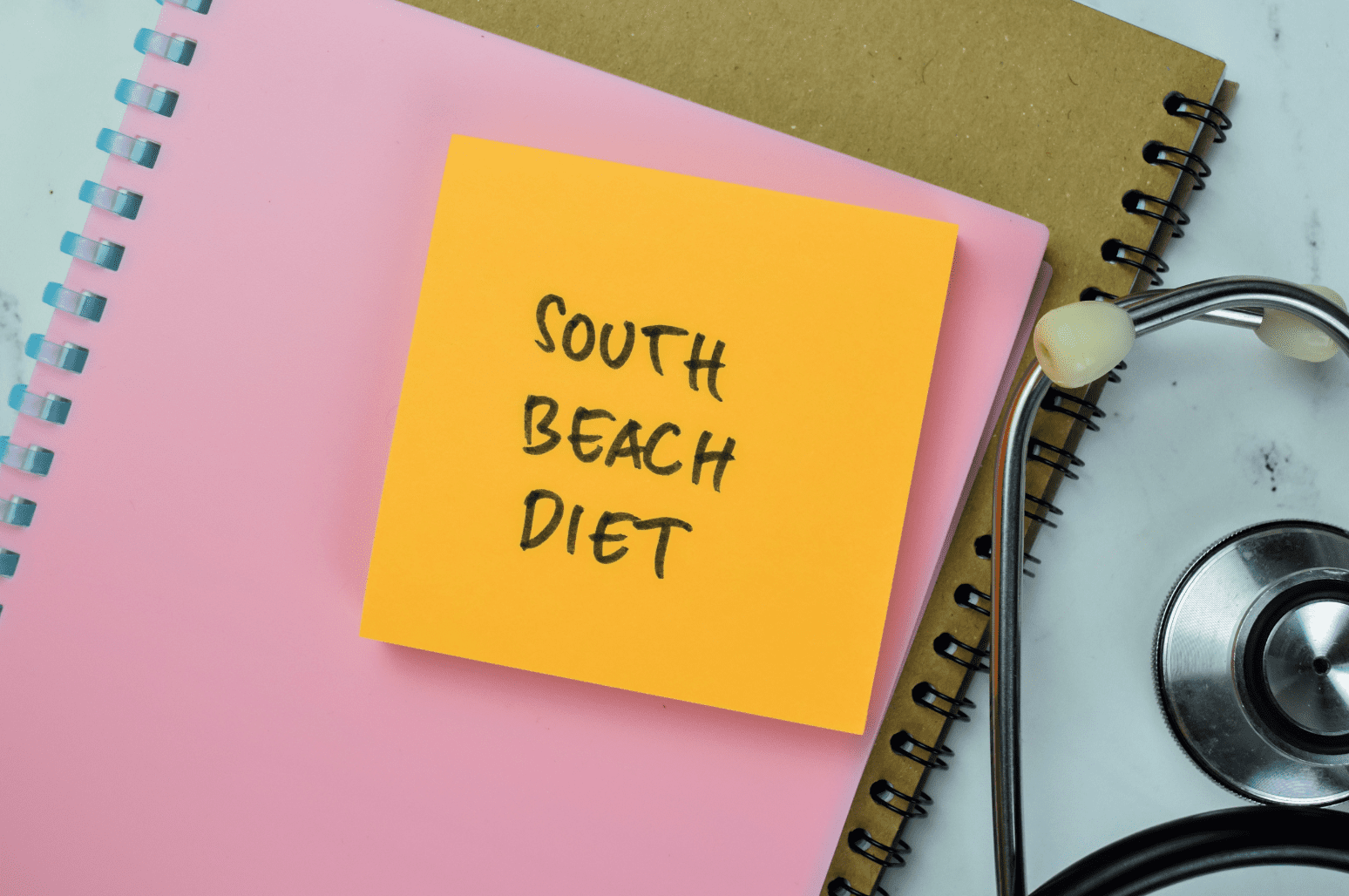Low Carb Vegetables and Fruit Allowed on Keto

You might be wondering about the best keto friendly fruits and vegetables. You’ll be happy to know you can choose from lots of different nutrient-dense colorful veggies and fruits to add to your keto menu. In general, you want to steer more toward vegetables than fruits on keto, since fruits usually contain more sugar. If you have a basic picture of keto-friendly vegetables and fruit allowed on keto, you can streamline your shopping sprees, cooking, and meal prepping and planning.
Keto Friendly Fruits
On the ketogenic diet, you should be more mindful when consuming fruit. Many fruits contain too many sugars and net carbs that increase your blood sugar and can kick you out of ketosis. Fructose is the sugar present in fruits.

Here are a few good choices when picking fruit allowed on keto:
- Berries (strawberries, blueberries, raspberries, and blackberries)
- Starfruit
- Avocados
- Tomatoes
Some people find they can consume certain fruits like melons in moderation on keto. It might take some experimentation to figure out what’s best for you.
Avocados are a perfect high-fat keto food that might even help with your cholesterol [1]. Read our article listing five of the many reasons to eat avocados! Berries are a sweet-tasting choice that can lower inflammation and provide important vitamins and nutrients [2].
Keto Friendly Vegetables
Vegetables are exceptionally beneficial for the ketogenic diet. Lower carb vegetables deliver antioxidants, vitamins, nutrients, and fiber! From sulfur-rich cabbage to broccoli and bok choy, you have options abound when it comes to veggies on keto.
Here are some of the top keto-friendly vegetables:
- Broccoli
- Cabbage
- Cauliflower
- Bok choy
- Asparagus
- Brussel sprouts
- Cucumber
- Celery
Studies show veggies have profound health benefits, including lowering the risk of cardiovascular disease and cancer [3].
Leafy greens like spinach, kale, swiss chard, collard greens, romaine lettuce, and arugula are excellent choices to add more healthy fiber and nutrients to your keto diet.
You should generally limit or avoid veggies with a more moderate or higher carb count, such as sweet potatoes, yams, and butternut squash. Certain vegetables, such as rutabaga and cooked carrots can usually be consumed in moderation on keto.

Every veggie is different when it comes to the carbohydrate and fiber content. Many people find the ketogenic diet is most advantageous when it incorporates fiber from vegetables. Remember you’re calculating net carbs — the result of the total serving of carbohydrates minus the grams of fiber. For example, a veggie plate with 10 grams of carbohydrates might contain 6 grams of fiber, resulting in 4 grams of net carbs. Fiber is subtracted from the overall carb count. Read our detailed article on fiber.
Tasty Keto Recipes!
Try some tasty recipes to incorporate more veg into your keto lifestyle:
- Asian Chicken with Sriracha Cabbage Slaw
- Keto Broccoli Salad
- Cauliflower Au Gratin
- Cauliflower Pizza
- Cauliflower Bread
- Spinach Frittata
- Brussel Sprouts and Bacon Hash
- Cheesy Creamed Kale
If you’re feeling fruity or craving something sweet, try one of these keto recipes:
What are Your Favorite Keto Friendly Fruits and Vegetables?
Do you prefer crunchy cabbage or cauliflower? Are you more of a fan of sweet strawberries or blissful blackberries?
References
López, R. L., Frati, A. M., Hernández, B. D., Cervantes, S. M., Hernández, M. L., Juárez, C., & Morán, S. L. (1996). Monounsaturated fatty acid (avocado) rich diet for mild hypercholesterolemia.Archives of Medical Research, 27(4), 519-523.
Joseph S. V., Edirisinghe, I., & Burton-Freeman B. M. (2014). Berries: anti-inflammatory effects in humans.Journal of Agricultural and Food Chemistry, 62(18). 3886-903.
Aune, D., Giovannucci, E., Boffetta, P., Fadnes, L. T., Keum, N., Norat, T., Greenwood, D. C., Riboli, E., Vatten, L. J., & Tonstad, S. (2017). Fruit and vegetable intake and the risk of cardiovascular disease, total cancer and all-cause mortality: A systematic review and dose-response meta-analysis of prospective studies.International Journal of Epidemiology, 46(3), 1029-1056.










CAN I EAT ANY KIND OF PEAS, IF NOT PLEASE TELL ME WHAT VEGETABLES TO EAT..THANK YOU.
Green peas are acceptable in low quantities. However, this article outlines several vegetables that are better options to consume on a ketogenic diet